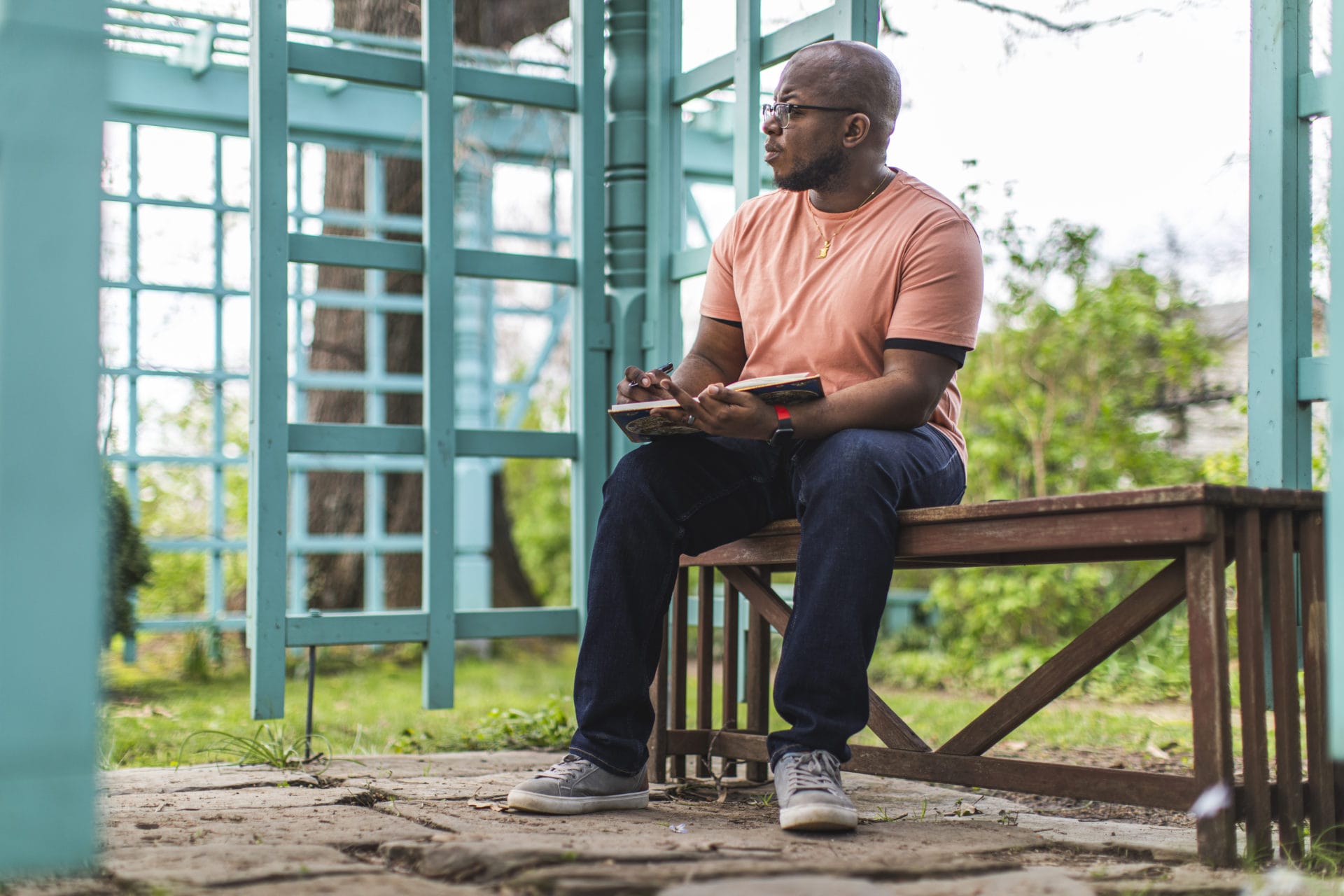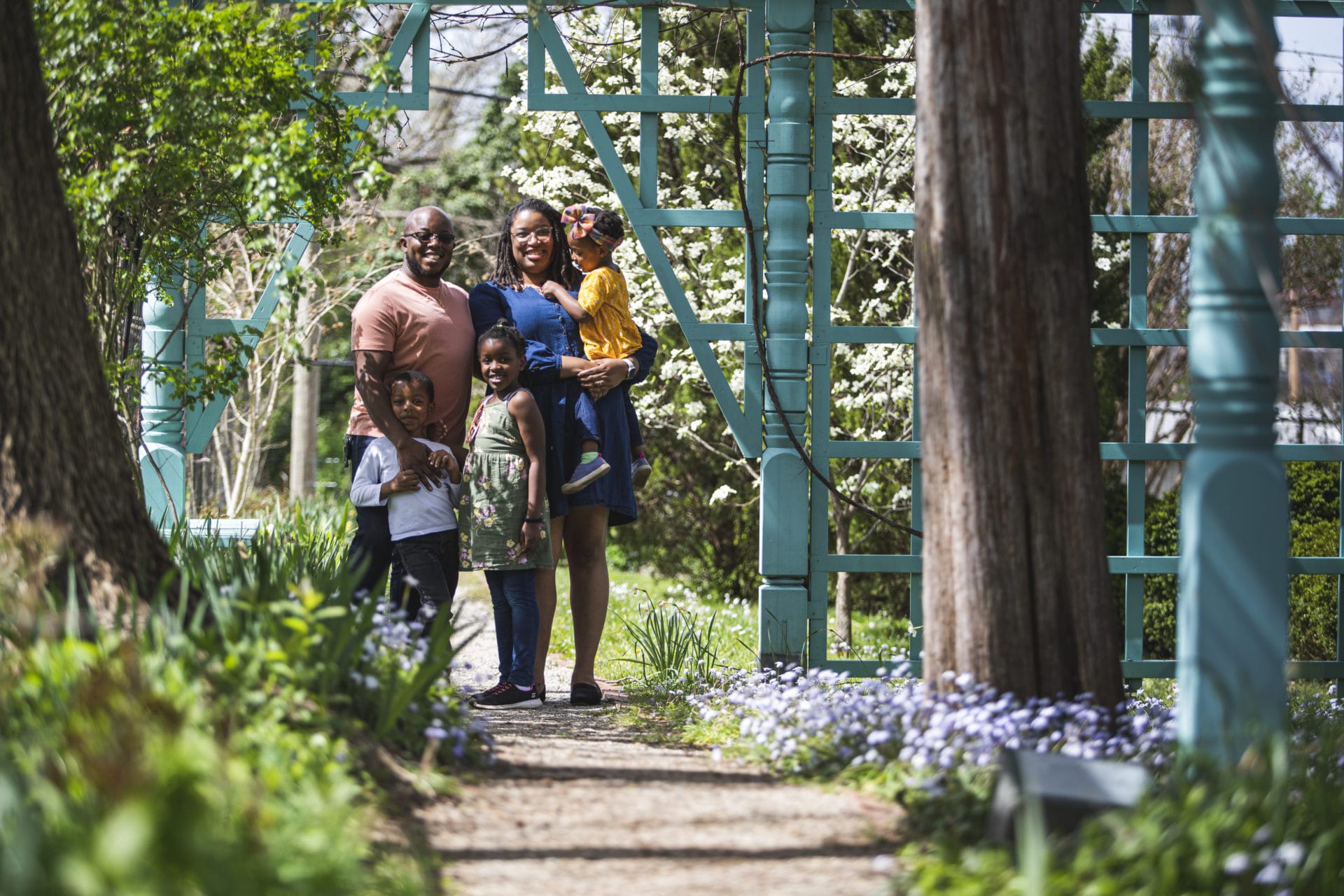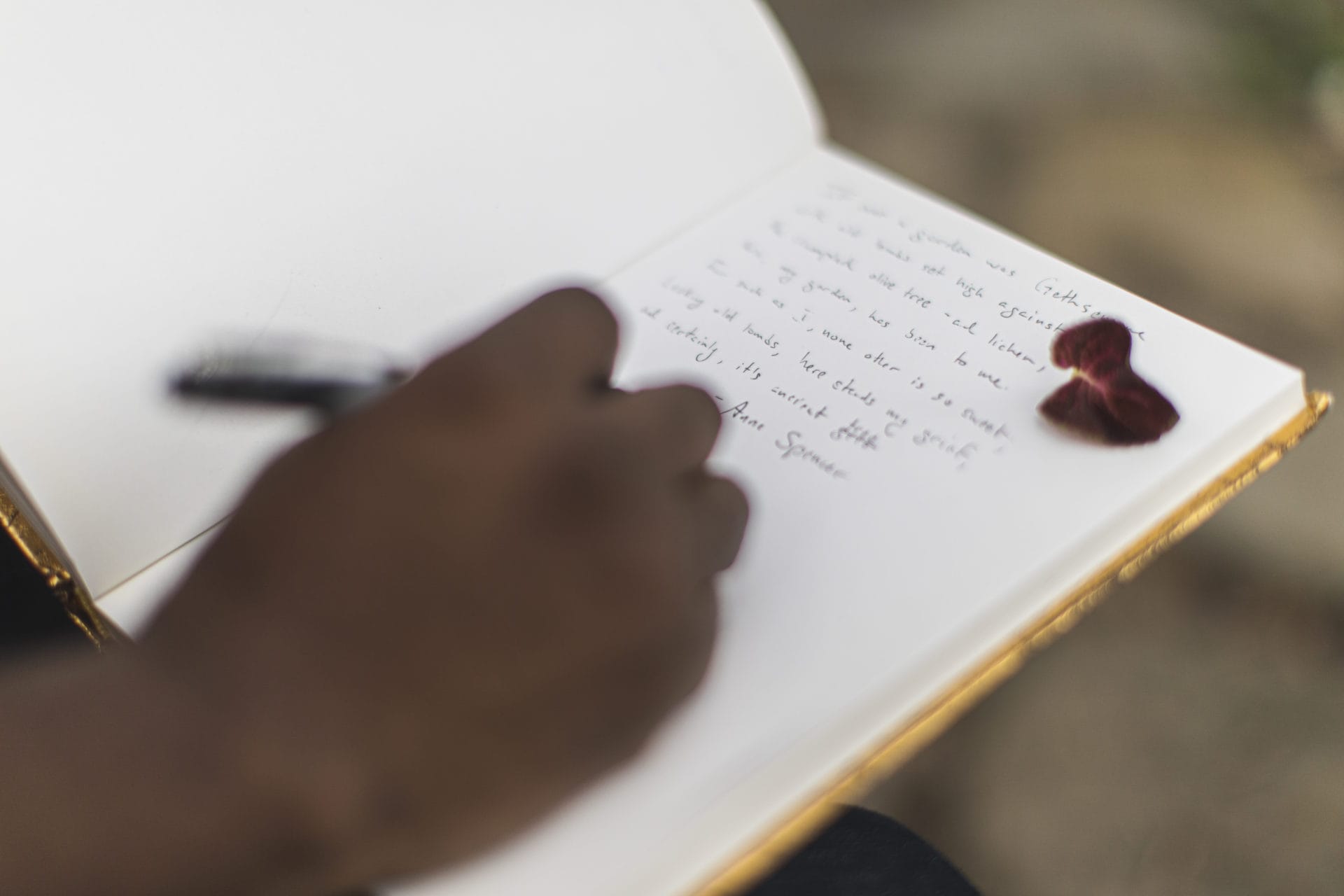Inspired by local history, community, and mental health, spoken word poet Nick George is holding space and inspiring a new generation on the power of poetry.
By Robin Sutten Anders
Author, advocate, and spoken word poet Nick George has a pet peeve. “The phrase ‘That’s just the way it is’ really irritates me,” he says. “It’s OK not to be satisfied. It’s OK to earnestly want something better, something that looks more like you.”
That’s a message George instills in his middle-school students at Dunbar. There, he teaches creative writing, teen living, and an exploratory course on the legacy of Dunbar High School—named after Paul Laurence Dunbar, a renowned African-American poet and pioneer.
“I teach at a school named after the Godfather of the Harlem Renaissance. Anne Spencer’s poetry and her House and Garden Museum informed how I saw the Hill City. For almost 20 years, Lynchburg has been my community, and my life here has been a source of inspiration,” he says. “But I found that many of the things in Lynchburg that resonated with me were undercelebrated.”

Nick George at Anne Spencer House & Garden Museum
Known for practicing what he preaches, George did something about it. In 2013, he started The Listening, a nonprofit that gives performing arts a space to impact education, mental health and social action.
The Listening hosts community engagement experiences, ranging from open mic nights to community discussions. “And we recently launched the Freedom School Program in partnership with the Children’s Defense Fund,” he shares. It’s a 6-week program that combats summer reading loss and engages students to discuss social issues, such as gun violence, voting laws, and youth incarceration.
From experience, George understands the power of poetry to help adolescents struggling with trauma. “In middle school, I was known for constantly writing. Because of that, my guidance counselor suggested I check out poetry,” he remembers.
Like many adolescents, George struggled with trauma and came up short when he tried to use traditional language to communicate what he was going through. Through poetry, he found a language that made sense. “It was a language I understood because it was a language I could make,” he says. “You can utilize similes to communicate things that simple sentence structure can’t do.”

The George Family at Anne Spencer House & Garden Museum
George adds that today’s adolescents are dealing with “a minefield of challenges” that make middle school harder than ever. “At this stage in the pandemic, the kind of support they need is insane. Plus, they’re confronting questions about who they really are and battling social media nonsense. Having the ability to communicate breaks down the feelings of loneliness that come with anxiety and depression.”
Through his work, George also helps fellow poets find a prominent stage for their art. For years, he has performed at the Academy, and now, as their newly appointed Artist in Residence, he is working to cement poetry as a core part of the Academy’s identity through curtain speeches, monthly poetry events, and writing workshops that give people a chance to learn more about the spoken word.
“The people I’ve met have played a major part in my artistry, how I consume art and music and poetry, and also the way I’m able to connect with what I do. I want other poets to find a platform here, too, to find strong representation. And I want to play a part in that happening.”

Since George held the first The Listening in 2013, he has asked a question that continues to be relevant today. “I asked, ‘If you had a room full of people willing to listen to you, what would you say?’” George explains.
He likes the question because it helps participants speak honestly. “We get really good at knowing our roles and playing the game and repeating scripts we think people expect from us,” he says. “We don’t always recognize when it’s safe to be ourselves.”
Giving his fellow Lynchburg citizens, no matter their age, a space to be themselves is George’s ultimate goal. After all, he believes that’s where meaningful change begins. “If we have the opportunity to be honest with ourselves, we can create from that.”
- Learn more about the
- Learn more about the

Robin Sutton Anders is a Greensboro, N.C.-based writer and the managing editor of Verdant Word Communications.
